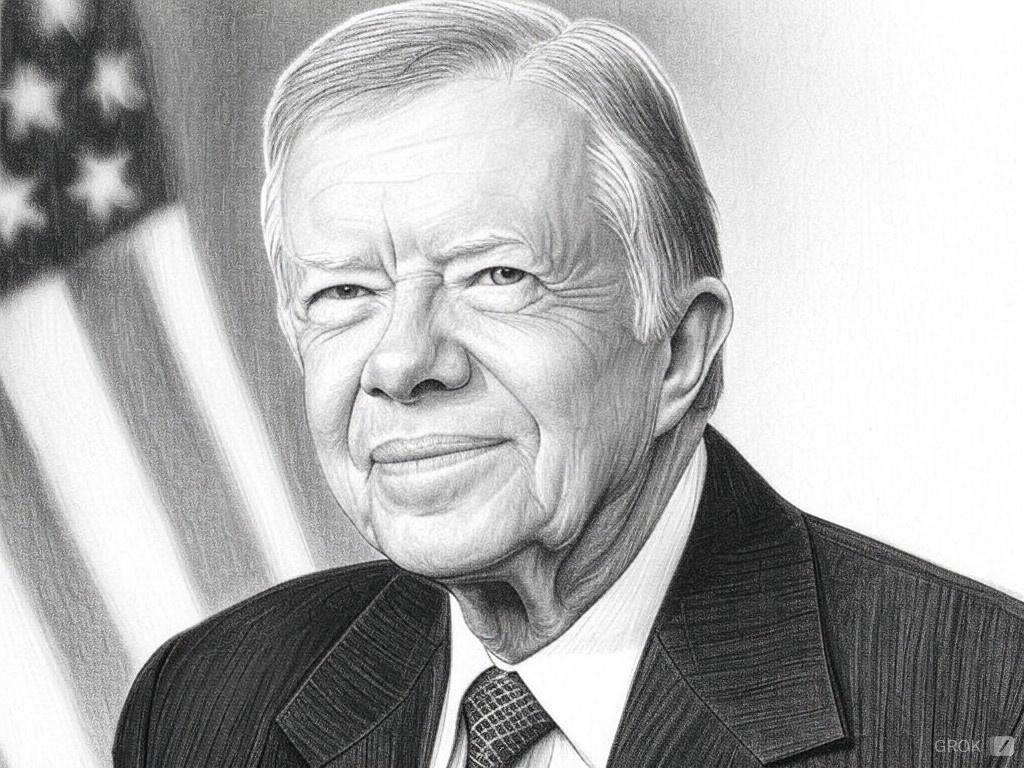
By Julian Cross
The planes were gone, the desert silent but for the whisper of sand on metal. Eight servicemen dead, a helicopter smouldering, and the hostages still in Tehran. It was April 24, 1980, and Jimmy Carter, a man who built his life on duty and hope, stood in the Oval Office knowing he had failed.
The rescue mission had collapsed in the Iranian desert. A President who prided himself on peace was now marked by the chaos of his time. The lights burned late in Washington that night, and Carter faced the weight of a nation’s disappointment.
James Earl Carter Jr., who died Sunday at 100, bore that weight with quiet resolve, and it would take decades for history to meet him with kindness. He left the White House in 1981 a one-term President, his administration scarred by inflation, energy crises, and the searing humiliation of the hostage crisis. Yet Carter’s story didn’t end there. He walked out of the shadow of failure and into the bright, unadorned light of service, reclaiming his place not as a politician, but as a man of simple decency.
Born October 1, 1924, in Plains, Georgia, Carter grew up on red clay and sermons. He learned early the value of work, faith, and fairness. A farmer’s son turned Naval officer, turned peanut farmer, turned governor, Carter rose to national prominence as a moral antidote to the corruption of Watergate. But in Washington, his goodness often read as naivety.
When his presidency ended, Carter didn’t wallow in resentment or retreat into wealth and influence, as so many do. Instead, he picked up a hammer. He built houses with Habitat for Humanity, taught Sunday school, and spoke for the voiceless. Through the Carter Center, he worked to eradicate diseases like Guinea worm, monitor elections, and broker peace where others saw only futility.
In these acts, America rediscovered the man it had once dismissed. Carter’s smile, creased by sun and years, came to symbolise a rare kind of hope—hope that a good life could still be built on humility and purpose.
He was a man who believed in forgiveness, even when the world was slow to forgive him. “I have one life and one chance to make it count for something,” he once said. “I’m free to choose that something, and I’ve chosen my faith.”
By the time he entered his 90s, America had come to embrace him, not as a perfect leader but as a good man. In the end, it was his humanity that endured. A man who knew failure, embraced it, and spent his life redeeming its lessons.
Carter's wife Rosalyn died last year. They are survived by four children, 11 grandchildren and 14 great grandchildren.
